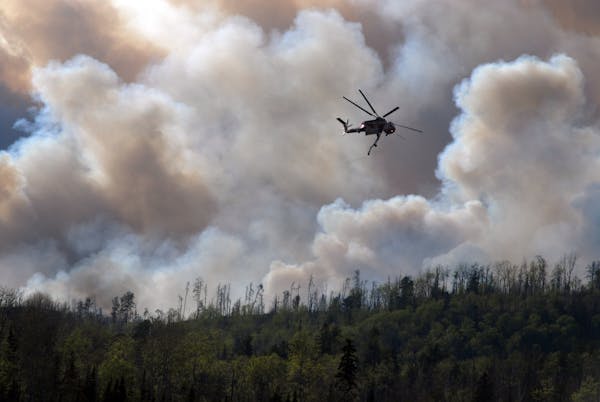How to prepare in wild country where fire is a risk
Tips on gear, staying alert and staying safe
Many of the principles that apply to responsible recreation in the outdoors — inside or outside the Boundary Waters Canoe Area Wilderness — also apply to wildfire, its threat, and how you increase your odds of staying safe.
Here are some general tips compiled from the U.S. Forest Service (USFS) — which manages the BWCA and the Superior National Forest — the Minnesota Department of Natural Resources, and other land managers and outdoors advocates:
Plan ahead
- Check for fire restrictions and other alerts before heading into an area to hike or camp. The USFS, for example, regularly updates alerts and warnings on its website at fs.usda.gov.
- Leave behind details of the trip: where you will be, when and, in the case of national forests, the contact for the nearest ranger station.
- Check maps of the region you're visiting and communicate ahead with land managers, who will be well-versed on where you are headed and different ways in and out.
With your gear
- Consider carrying a personal location beacon or a satellite communicator like the inReach devices, which allow you to text, send an SOS and share your location.
- Bring a few leftover N95 or KN95 face masks in case there is smoke.
- Bring a weather alert radio that offers National Oceanic and Atmospheric Administration alerts.
Be watchful, mindful, safe
- Watch for sudden changes in the weather. While most wildfires are human-caused, according to the USFS, lightning starts fires, too. Consider leaving the area if the weather turns bad.
- If you see fire or smoke, note your location (a GPS coordinate is even better) and try to connect with 911.
- Never leave a campfire, and if it is extinguished, make sure it is cold to the touch.
- Watch the direction of the smoke column. It's bending in the direction of the fire.
- If trapped by fire on foot, get to a rocky area or one otherwise clear of vegetation if possible. Cover exposed skin with a long-sleeved shirt or blanket. Have gloves or boots? Wear them.
- Stay low to the ground in heavy smoke. The air will be better there.
- Consider sheltering behind lake rocks or on an island if needed.

